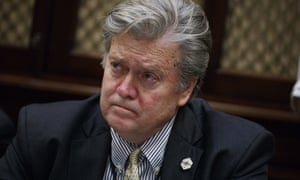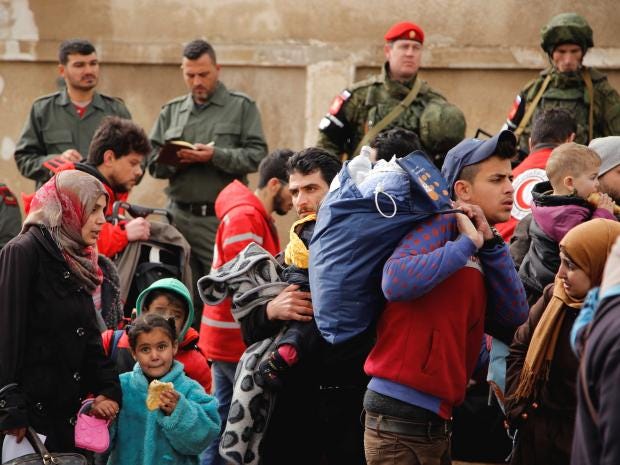was on the payroll of Cambridge Analytica Photograph: Evan Vucci/AP
An urgent review of “weak and helpless” electoral laws is being demanded by a group of leading academics who say that uncontrolled “dark money” poses a threat to the fundamental principles of British democracy.
A working group set up by the London School of Economics warns that new technology has disrupted British politics to such an extent that current laws are unable to ensure a free and fair election or control the influence of money in politics.
Damian Tambini, director of the media policy project at the LSE, who heads the group made up of leading experts in the field, said that new forms of online campaigning had not only changed the ways that political parties target voters, but crucially had also altered the ability of big money interests to manipulate political debate. “There is a real danger we are heading down the US route where whoever spends the most money is most likely to win. That’s why we’ve always controlled spending in this country. But these controls are no longer working.”
Its policy brief published on Saturday concludes that current laws can no longer ensure the fundamental principle of a “level playing field”, or guard against foreign influence, and that parliament urgently needs to review UK electoral law.
It comes as questions continue to be asked about spending during the referendum campaign. In an interview published in Sunday’s Observer New Review, Arron Banks, the founder of the Leave.eu campaign, says: “We were just cleverer than the regulators and the politicians. Of course we were.”
The Electoral Commission is investigating whether work that the data analytics firm Cambridge Analytica may have done for Leave.eu constitutes an undeclared donation from an impermissible foreign donor. Cambridge Analytica is majority owned by the hedge fund billionaire Robert Mercer, who bankrolled Donald Trump. Filings from the White House disclosed on Friday that Steve Bannon, Donald Trump’s strategy chief, was paid $125,333 by the firm last year.
Asked whether he was worried about the Electoral Commission’s investigation into Leave.eu, Banks said: “I don’t give a monkey’s about the Electoral Commission.”
Banks also claimed that Vote Leave “cheated” to get around campaign financing rules by donating money to third party campaigns. “They cheated! They gave 650 grand to a student. Come on! They absolutely, 100% cheated.”
A spokesman for Vote Leave responded: “The Electoral Commission gave us a clean bill of health.”
Privately, the commission admitted that the only penalties it was allowed to impose by law offered no deterrent to political parties, particularly in a one-off referendum. In addition, the LSE found that loopholes in electoral law mean that spending by political parties during the referendum was almost entirely unregulated or even recorded. The real cost of the campaign – building databases to target voters via social media – occurred almost entirely outside the period regulated by law.
Tambini said: “We don’t have a system that is working any more. In this country, we have had laws to control spending by political campaigns but online campaigning has changed everything and none of the existing laws cover it. The ability to throw around large amounts of cash is almost completely uncontrolled. The key costs in campaigning – building the databases – is happening during the period when campaign spending is not regulated at all.
“There is a real danger that public trust in the democratic process will be lost. There is real potential for foreign influence. We have now the ability to manipulate public opinion on a level we have never seen before. And the current framework is weak and helpless.”
The Electoral Commission has not yet made any public statement but privately it said: “We did have this environment that guaranteed a level playing field. But with the shift online that has all changed. We won’t be able to limit the power of money in elections, that’s what we’re very concerned about.”
Tambini said: “It is urgent. There could be a wholesale loss of trust in the process as the result of a scandal or swinging of an election. Though some would argue that has already happened. There has to be a principle of transparency. The public needs to know where the money is coming from. And we don’t.”
Martin Moore, director of the Centre for the Study of Media, Communication and Power, at King’s College London, said the machinery of campaigning had changed so rapidly, the law has had no chance to catch up. “The first election where digital made a difference was in 2008. And now it’s where pretty much all the spending is. It has been a shift that has happened in less than 10 years. What we’re seeing is exactly the same sort of disruption that we’ve seen in news and music and other industries.
“That is exactly what is happening in politics. The problem is that if you disrupt politics, you are also disrupting the democratic process and you are creating a very dangerous or volatile situation.”
In addition, the Electoral Commission said privately that it did not have the resources to monitor campaigns in real time. “It’s just not practical. There is some proactive stuff that we can do but we simply don’t have the resources.” The only action it can take is once the campaign is over and then the only penalties are fines which “campaigns can simply cost into their spends”.


